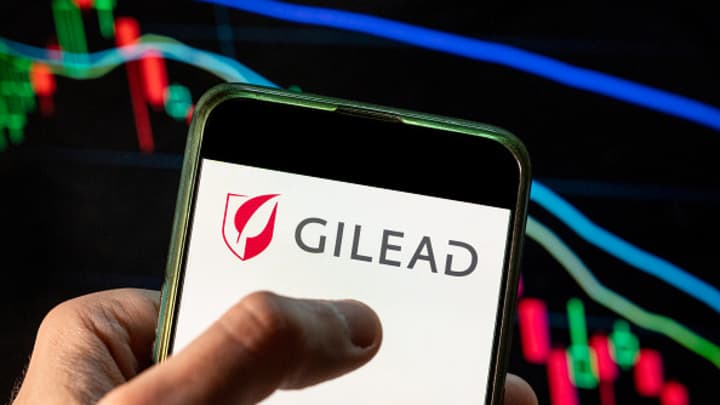
Shares of fell more than 10% on Monday after a from the company did not significantly extend the lives of patients with a certain lung cancer in a .
The results are a blow to Gilead, which is working to become a power player in the cancer space. The treatment, Trodelvy, is one of Gilead's best-selling cancer drugs, contributing roughly a third of its in oncology sales during the third quarter.
The phase-three study was part of an effort to expand the use of Trodelvy, which is already approved to treat some types of breast and bladder cancers.
Patients with advanced or metastatic non-small cell lung cancer who took Trodelvy lived longer than those who got chemotherapy alone, according to Gilead. But those results did not meet the trial's bar for success.
The drugmaker said it will discuss the results with regulators and identify whether certain lung cancer patients may still benefit from the drug.
Trodelvy belongs to a class of widely sought-out treatments called , or ADCs, which deliver a cancer-killing therapy to specifically target and kill cancer cells and minimize damage to healthy ones. Standard chemotherapy is less selective — it can affect both cancer cells and healthy cells.
ADCs are one of the hottest areas of the pharmaceutical industry, as large drugmakers ink deals to acquire or co-develop them.
Jefferies analyst Michael Yee said Gilead's trial results are not "totally surprising" to the firm because data from early studies was mixed and data for competing drugs was "lackluster."
Yee added that the trial results could "dent" investor confidence about whether Gilead will have significant sales in oncology.



